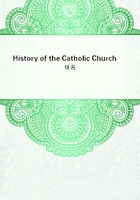
第182章
Cromwell was appointed the king's vicar-general, from whom the bishops and archbishops were obliged to take their directions. Severe measures were to be used against anybody who spoke even in private in favour of Rome. The Prior of the London Charterhouse and some other Carthusians were brought to trial for refusing to accept the royal supremacy (April, 1535). After an able and uncompromising defence they were found guilty of treason and were put to death with the most revolting cruelty.[30] Bishop Fisher and Sir Thomas More, who were prisoners in the Tower, were allowed some time to consider their course of conduct.
Fisher declared that he could not acknowledge the king as supreme head of the Church. While he lay in prison awaiting his trial, Paul III., in acknowledgment of his loyal services to the Church, conferred on him a cardinal's hat. This honour, however well merited, served only to arouse the ire of the king. He declared that by the time the hat should arrive Fisher should have no head on which to wear it, and to show that this was no idle threat a peremptory order was dispatched that unless Fisher and More took the oath before the feast of St. John they should suffer the penalty prescribed for traitors. Fisher, together with some monks of the Carthusians, was brought to trial (June 1535), and was found guilty of treason for having declared that the king was not supreme head of the Church. The prisoners were condemned to be hanged, drawn, and quartered. In the case of the Carthusians the sentence was carried out to the letter, but as it was feared that Fisher might die before he reached Tyburn he was beheaded in the Tower (22nd June), and his head was impaled on London bridge.[31]
Sir Thomas More was placed on his trial in Westminster Hall before a special commission (1st July). Able lawyer as he was, he had no difficulty in showing that by silence he had committed no crime and broken no Act of Parliament, but no defence could avail him against the wishes of the king. The jury promptly returned a verdict of guilty. Before sentence was passed the prisoner spoke out manfully against royal supremacy, and in defence of the authority of Rome. He declared that the Act of Parliament, which conferred on the king the title of supreme head of the Church, was opposed both to the laws of God and man, that it was in flagrant contradiction to the Magna Charta, and that the king of England could no more refuse obedience to the Holy See than a child could refuse obedience to his father. Even after his trial and condemnation another attempt was made to induce him to submit, but he refused, and on the 6th July he finished his career as a martyr for Rome.[32]
The execution of Fisher and More showed plainly to all that the breach with Rome was not likely to be healed. When news of what had taken place in England reached Rome Paul III. was anxious to issue a decree of deposition against Henry. Had he done so, and had he been supported by the Emperor and Francis I. there is no doubt that many of the English noblemen would have joined the standard of the invaders, but the hostility between France and the Emperor saved Henry. Neither party was willing to aid the Pope lest the other should form an alliance with England. Fearing such a union, however, between Francis I. and Charles V. Henry hastened to seek the aid of the Protestant princes of Germany. From 1531 he had been in communication with them urging them to be careful about introducing religious innovations, but he was now so alarmed lest the Emperor and the King of France might join hands to assist the Pope in convoking a General Council, that English envoys were directed to meet the Protestant princes at Schmalkald (1535), to arrange for common action. A close union between England and the Protestant states of Germany could not be effected, because the Protestant princes insisted that Henry should accept the Confession of Augsburg, and Henry refused to permit such interference in the religious affairs of England. Still, English divines were instructed to remain at Wittenberg, and Lutheran theologians were invited to come to England for the discussion of religious differences.[33]
Meanwhile Cromwell was engaged in a visitation of the monasteries of England (1535). To bring home to the minds of the bishops the meaning of royal supremacy, he suspended their visitations while the royal visitors were at work. Cromwell, unable to undertake the duty himself, appointed delegates, and supplied them with the list of questions that should be administered. His principal delegates were Richard Leyton and Thomas Leigh, both men, as is evident from their own letters, who were not likely to be over scrupulous about the methods they employed.
They were harsh, rude, and brutal in their treatment of both monks and nuns, especially in houses where they suspected hostility to the recent laws. They used every means in their power to break up the harmony of religious life, and to unsettle the minds of the younger members of the communities. In a few months the visitations were finished, and the reports of the visitors were presented to Cromwell.